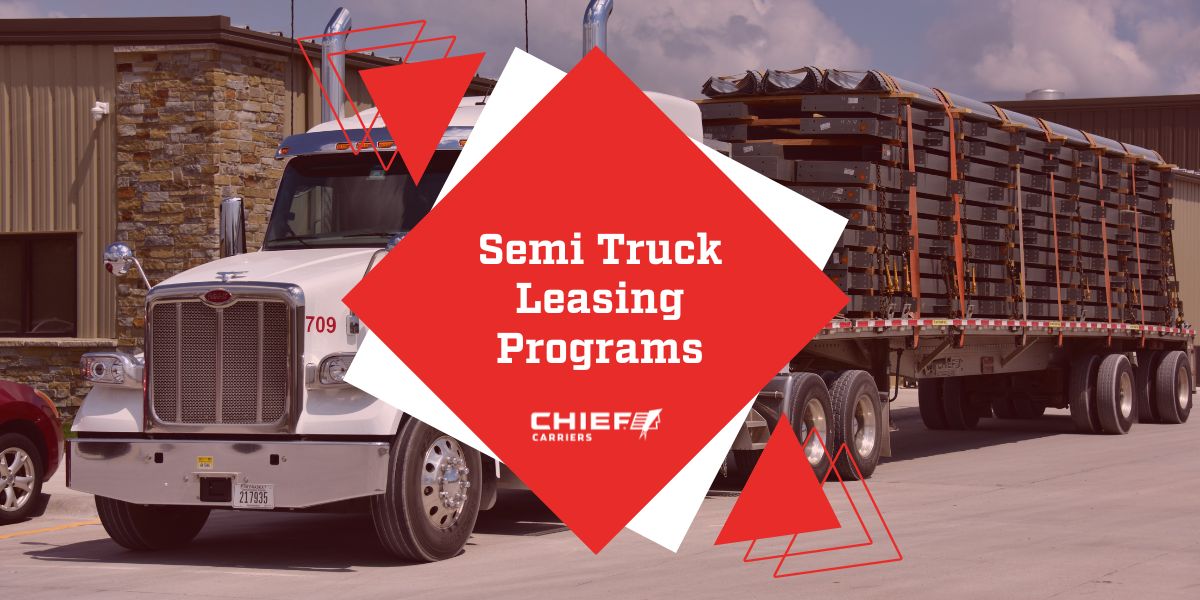Understanding Lease Options in the Trucking Industry
Deciding between lease-operator trucking and lease-purchase options can feel like navigating uncharted territory. Each path offers its own mix of benefits and challenges, enticing drivers with the promise of ownership and autonomy.
However, making the right choice requires careful thought and understanding.
Lease-operator trucking allows drivers to lease a truck directly from a carrier, providing access to newer vehicles under the company’s authority.
Lease-purchase agreements pave the way to eventual truck ownership through a different route.
Both options hold potential for aspiring owner-operators, but distinguishing between them is crucial.
In this comprehensive guide, we explore the nuances of lease-operator trucking and lease-purchase programs, examining their advantages, limitations, and the factors that influence your decision.
Whether you’re considering your first steps into truck ownership or seeking to refine your approach, join us as we unravel the complexities of these leasing options to help you determine the best path forward for your ambitions.
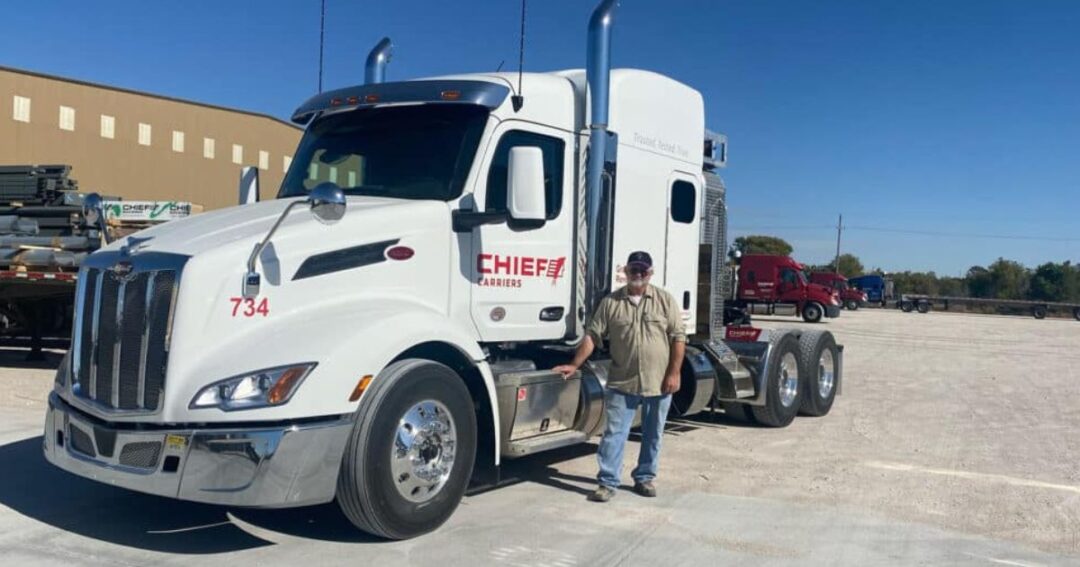
Lease-Operator Trucking
Lease-operator programs represent a pathway to flexibility and independence for drivers.
These programs empower drivers by offering them the opportunity to lease trucks from carriers without the burden of a long-term commitment.
By operating as independent contractors within these programs, drivers gain the freedom to manage their schedules and routes while benefiting from the support and resources provided by the carrier.
With lease-operator programs, drivers can access modern equipment and enjoy reduced upfront costs, making it an attractive option for those seeking greater control over their trucking careers.
Is Lease Purchase a Good Idea for Truckers?
Lease-operator programs offer several advantages for truckers, making them a favorable option for many. With access to newer equipment, drivers can enjoy enhanced safety features and improved efficiency on the road.
Additionally, these programs typically require lower upfront costs compared to traditional truck ownership, allowing drivers to enter the industry with less financial strain.
By participating in lease-operator programs, truckers can access valuable resources and support from carriers, setting them up for success in their trucking endeavors.
Lease-Purchase Programs
Lease-purchase programs serve as a hybrid approach for drivers aspiring to own their trucks while still benefiting from the support of carriers.
In these arrangements, drivers lease trucks with the option to buy them at the end of the lease term, enabling them to gradually work towards ownership.
While providing a stepping stone to autonomy, lease-purchase programs requires thorough examination of terms, including down payments, monthly installments, and buyout clauses.
What Trucking Company Has the Best Lease Purchase Program?
Choosing the right lease-purchase program requires careful consideration of various factors, including the terms offered by different trucking companies.
While many carriers offer lease-purchase options, drivers must assess each program’s terms and conditions to determine which aligns best with their goals and financial capabilities.
Factors to evaluate include down payment requirements, monthly payments, maintenance responsibilities, and buyout options at the end of the lease term.
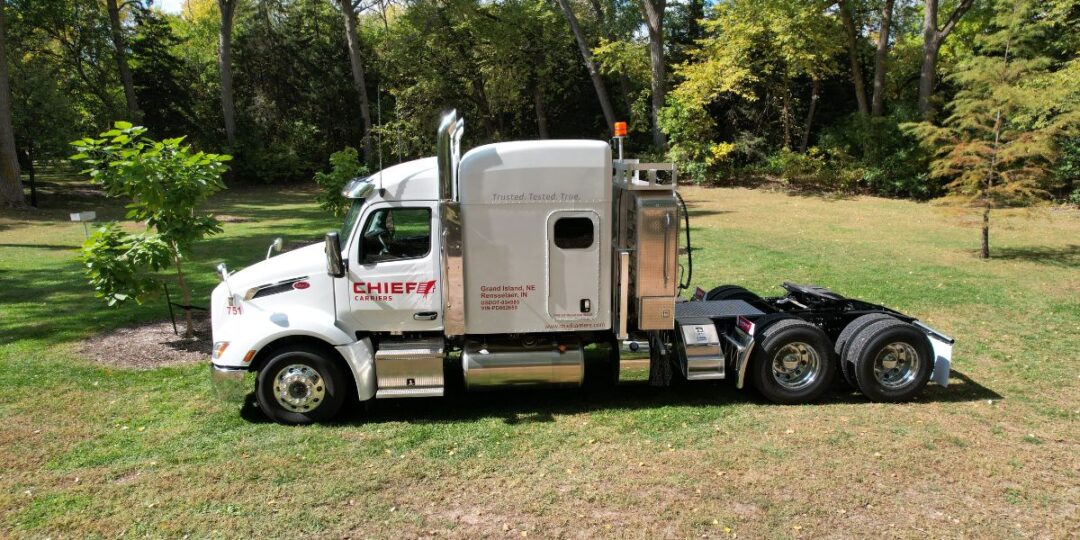
Chief Carrier Lease Purchase Program
Chief Carriers recognizes the challenge and expense of entering truck ownership, which can be daunting for many professional drivers.
To bridge this gap, we offer a Lease-Purchase Program designed to ease the transition into truck ownership, providing a practical alternative for drivers who may lack the initial resources.
Our Lease-Purchase Program is designed not just to get you behind the wheel, but to set you on a clear path to truck ownership, backed by the full support and resources of Chief Carriers.
Key Components of Lease Agreements
Lease agreements are comprehensive documents that delineate the terms and conditions governing the leasing of trucks. These agreements cover essential aspects such as the duration of the lease, specifying start and end dates, monthly payment details, and the allocation of maintenance responsibilities between the lessor and lessee.
Additionally, lease agreements may include provisions regarding mileage limits, early termination clauses, and options for purchase at the end of the lease term.
Lease Agreement for Trucking Owner-Operator
For trucking owner-operators, lease agreements serve as foundational documents that define the terms of their leasing arrangement with carriers or leasing companies.
It is imperative for owner-operators to meticulously review lease agreements to ascertain that the terms align with their specific needs, preferences, and business objectives.
Evaluating Lease Options from Trucking Companies
When considering lease options from various trucking companies, drivers must conduct thorough research and comparisons to identify the most suitable program for their needs.
This process involves examining key factors such as lease duration, payment structure, maintenance provisions, and end-of-lease options.
Choosing the Top Lease Purchase Program for Your Goals
Identifying the best lease purchase program among trucking companies requires careful consideration of several factors.
These include the amount of down payment required, the structure of monthly payments, and the options available at the end of the lease term.
Drivers should also assess additional terms and conditions, such as mileage limits, maintenance responsibilities, and any penalties for early termination.
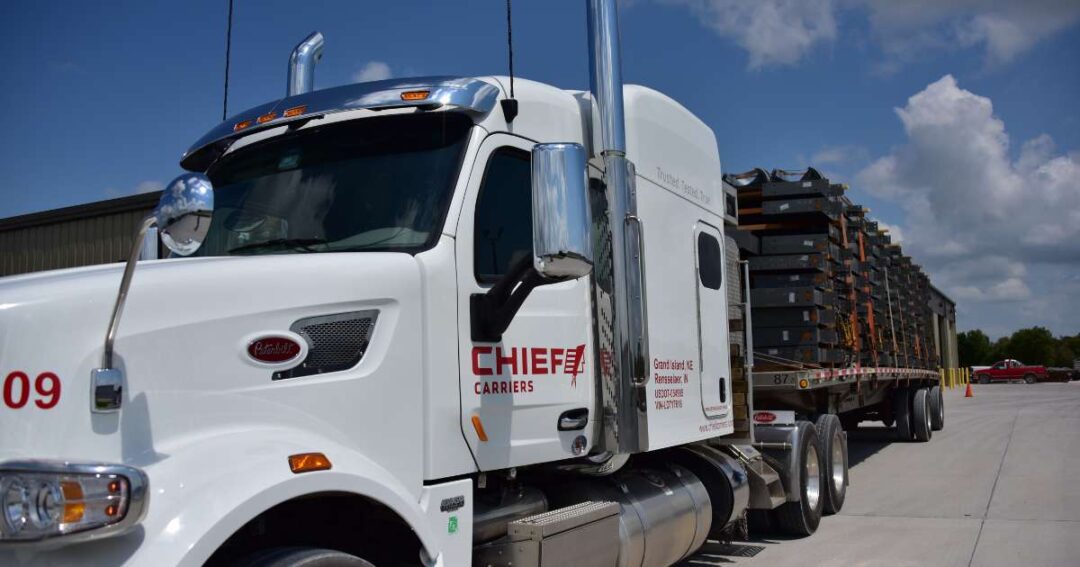
Differences Between Lease-Operator and Lease-Purchase
Understanding the disparities between lease-operator and lease-purchase arrangements is crucial for drivers entering into trucking agreements.
Lease-operators typically have less financial commitment upfront and fewer responsibilities compared to lease-purchase agreements.
While lease-operators enjoy flexibility and minimal upfront costs, lease-purchase arrangements offer drivers a pathway to eventual truck ownership but often come with stricter terms and potentially higher overall costs.
What is the Difference Between Owner-Operator and Leasing?
Owner-operators retain more autonomy and control over their operations compared to lessees.
In a lease-purchase agreement, drivers work towards eventual ownership but may face stricter terms and higher overall costs.
Lease-operators enjoy flexibility and reduced upfront financial commitments. While both options offer opportunities for drivers to advance in their careers, understanding the distinctions is vital for making informed decisions that align with individual goals and financial circumstances.
Pros and Cons of Lease Arrangements
Lease arrangements in the trucking industry offer drivers flexibility and access to equipment without the upfront costs associated with ownership.
This can be particularly advantageous for drivers looking to enter the industry or expand their fleet without significant initial investments.
However, while leases provide short-term benefits such as predictable monthly payments and access to newer equipment, they may entail higher overall costs in the long run compared to outright ownership.
Why Do Trucking Companies Lease Trucks?
Trucking companies opt to lease trucks for various reasons, including managing cash flow, avoiding depreciation risks, and maintaining fleet flexibility.
Leasing allows companies to access the latest equipment without tying up capital in vehicle purchases.
Additionally, leasing agreements often include maintenance packages, reducing unexpected repair costs and downtime.
Companies carefully evaluate lease terms and conditions to ensure they align with their operational needs and long-term financial objectives.
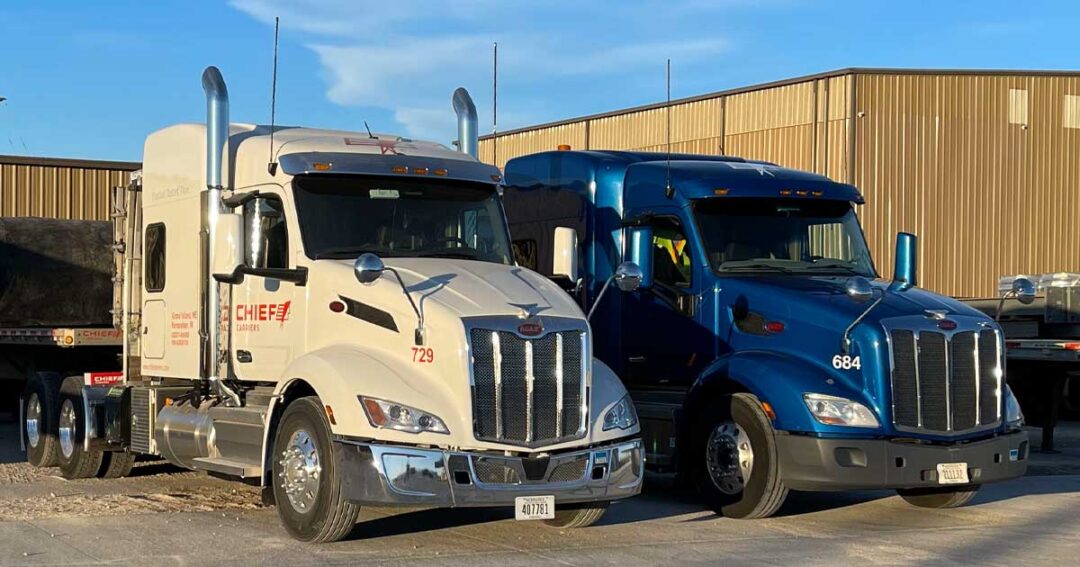
Impact of Lease Options on Truckers’ Careers
Lease options play a significant role in shaping truckers’ careers, impacting various aspects such as earnings potential, job security, and level of autonomy.
Depending on the terms of the lease agreement, drivers may experience fluctuations in income due to varying payment structures and expenses.
Certain lease arrangements could offer more stability in terms of consistent work and routes, while others may entail greater flexibility but with potential income volatility.
How Does Leasing Impact Truckers’ Careers?
Truckers need to carefully evaluate how leasing arrangements align with their long-term career objectives and personal preferences. While leasing can provide access to equipment and opportunities for entrepreneurship, it also introduces financial risks and constraints.
Drivers should consider factors such as lease duration, payment structures, and end-of-lease options when assessing the impact on their careers.
Finding the Right Lease Option
When considering lease options, drivers must prioritize key factors to ensure the arrangement aligns with their needs and goals. Payment flexibility is crucial, as it affects cash flow and budget management.
Additionally, assessing maintenance coverage is essential to avoid unexpected expenses and downtime.
For those aspiring to ownership, evaluating lease-purchase programs based on terms and end-of-lease options is important.
How to Identify the Top Lease Purchase Programs in Trucking
Navigating the complexities of lease agreements can be overwhelming for drivers, making it essential to seek guidance from experienced peers and industry professionals.
By tapping into their knowledge and insights, drivers can gain valuable perspectives on different lease programs, including which trucking companies offer the best lease purchase options.
Financial Considerations in Lease Agreements
Exploring the financial dimensions of lease agreements is vital for drivers to sustain profitability and operational efficiency.
It involves exploring beyond the surface of monthly payments to grasp the broader financial commitments and implications.
Managing Financial Obligations in Lease Agreements
Successfully managing financial obligations within lease agreements requires meticulous budgeting and foresight.
Drivers must factor in lease payments, ongoing maintenance costs, and potential penalties for non-compliance.
By mastering lease agreements, drivers can ensure their financial stability and long-term success in the trucking industry. This involves careful consideration of terms, proactive budgeting, and seeking advice when needed.
From the outset, drivers must scrutinize lease terms, evaluating factors such as duration, payments, and maintenance responsibilities. With this knowledge, they can make informed decisions that align with their long-term goals and financial capacities.
As drivers progress in their careers, they should continually reassess their lease options, considering how each arrangement impacts their earnings, job security, and autonomy. Seeking advice from experienced peers and industry professionals can provide invaluable insights into choosing the right lease program.
Ultimately, the key to success lies in proactive financial management. By budgeting effectively and staying vigilant about their financial obligations, drivers can navigate lease agreements with confidence, ensuring profitability and sustainability in their trucking careers.
Remember, understanding the financial landscape of lease agreements is not only essential for maximizing profitability but also for maintaining operational efficiency and long-term success in the trucking industry.
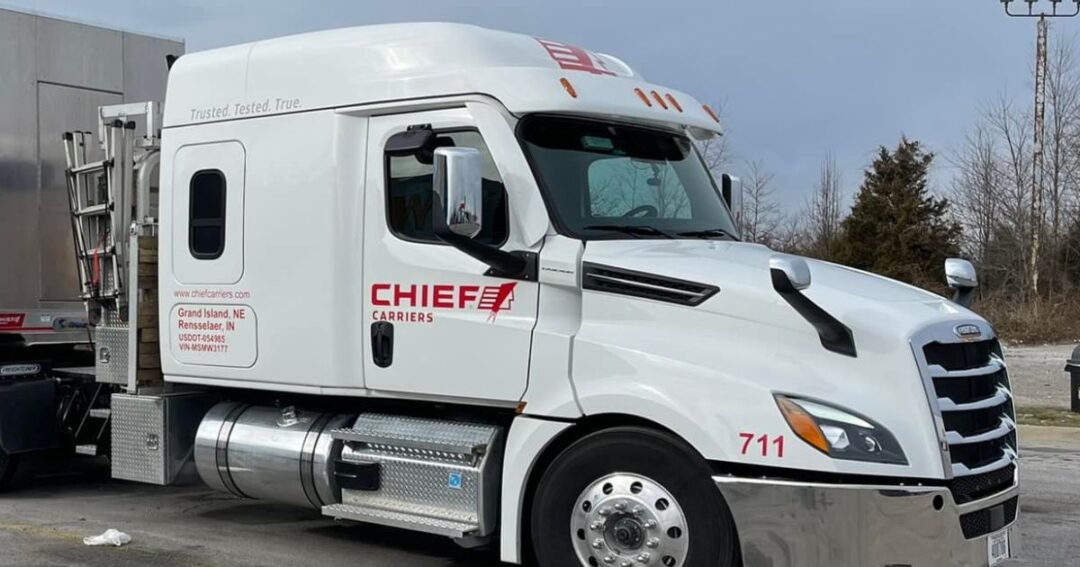
Get Started with a Lease Program from Chief Carriers
Ready to take the next step towards truck ownership? Learn about our lease programs today and start your journey with Chief Carriers.
Discover the benefits of our lease options, including walk-away lease choices, paid plates and permits, and zero or low down payment options. Enjoy additional perks like no-charge mobile communication, in-house maintenance accounts, and fuel discounts.
With a variety of equipment available, including top models like the Freightliner Cascadia and Peterbilt series, finding the right fit for your needs is easy.
Choose between our Lease-Operator and Lease-Purchase programs to suit your preferences and goals. Whether you’re starting out or looking to expand your fleet, Chief Carriers has the solution for you.
Get started now and drive towards success with Chief Carriers!

